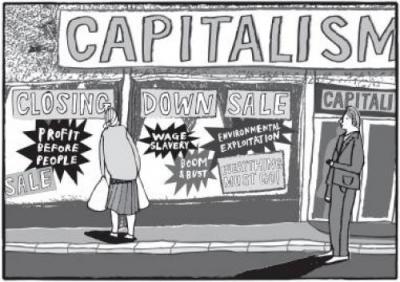 Reduced spending on public health, education and welfare services have placed greater burden on the working class-people. The struggle to improve the quality and access to these services for workers is of the utmost importance for improving the living standards of the immense majority of the population.
Reduced spending on public health, education and welfare services have placed greater burden on the working class-people. The struggle to improve the quality and access to these services for workers is of the utmost importance for improving the living standards of the immense majority of the population.
The provision of public utilities (water, electricity, road, hospitals etc) used to be by the state. The amount of funds needed to make them available were huge and profits could not be quickly generated to recoup such investment. So the bosses preferred that the state did this. It was in a sense, a subsidy for the profit generation of employers. Better infrastructure was good for business and healthier workers could work better.
But in the past four decades or so, of neoliberalism, privatization has become a major strategy for furthering the enrichment of the very rich. Public utilities which were established with billions of billions of dollars from taxpayers’ monies in different parts of the world have been sold at giveaway prices to a few rich people and their corporations.
Nigeria with an area of 9 13, 072.64 square kilometers (about 356.6 square miles) and a population of about 170 million people is a large country with great potentials of human and material resources for development. In the past fifty-six years since Independence, working people in Nigeria have been facing many problems. While these problems arise from the capitalist system which the country is a part of, the bosses and policy makers of the state try to make it appear as a teething problem about determining the appropriate means and strategies to better the life of the working class-people.
The high hopes for development as desired by the working people have been dashed time and again with inadequate and poor quality of social services and infrastructures. This is seen as reflecting our state of underdevelopment. But, the idea of development in general loses sight of the different ways in which capitalist development affects different classes.
New and old developmentalists alike “ignore the exploitative nature of capitalist production relation” and “set aside capitalisms inherent tendency toward social polarization”. They also uphold “an idealized understanding of the state”, promoting the illusion that it is a neutral body of institutions that can moderate capitalist development for the overall “social good”.
Many developmentalists point at the so-called South East Asian “miracles” to justify building a developmentalist state on capitalist bases as the way forward to transform society. But they fail to put these in the context of the post-World War II reconstruction during which capitalism grew and on the ruins of the earlier destruction of economic crisis (the Great Depression) and two imperialist world wars.
They thus underestimate the reality of imperialism and capitalism’s tendency towards uneven and combined developments.
In contrast to this illusory approach, contributors to the book Polarizing Development: Alternative to Neoliberalism and the Crisis, present a range of concrete strategies and principles which can actually help us to remake the world as a better place.
The “struggle to substantially democratize the public sector” and for a collective struggle for social and renewed public service to alleviate the unequal burden women face daily are part of these. The imperative of “workers led resistances and aspirations for achieving gains through their collective mobilization” cannot be overemphasized for development to bring about workers’ emancipation.
We could thus say that development that is in the interest of the working people must institute change in society and such change must entail progress in the sense that it delivers enhanced quality of life for the majority of population, being working people. For this to be achieved, development must do away with inequitable distribution of social wealth. There is more than enough resources for everybody to live a good life, if not for the fact that, under capitalism, the 1% enjoy 90% of all wealth.
Development must also not be misconstrued simply as being growth” or increased productivity in Nigeria as in many developed nations. Even during periods of great growth under capitalism, development eludes millions of poor working class-people.
For instance, while the GDP of Nigeria is presently put at 8%, what we experience is more poverty, unemployment, lay off of workers and the worsening of our economic situation resulting in reduced purchasing power of workers and worsening standards of living.
Lastly, development for working people cannot be said to mean the same things as either modernization or Westernization in view of the fact that the primary goal of development goals for capitalists is essentially increased profit, since capitalism is essentially driven by the quest for accumulation of more capital.
The imperative of development for working class-people is emancipatory. Liberation from want is central to this. No human being should lack, with all the wealth available to humankind. But development cannot also be reduced to “stomach infrastructure”. Emancipation entails freedom fought for, won and defended as an integral part of development, by working people.
Our pathway to such emancipatory development must include demands such as: No to privatization! No to deregulation! No to commodification! Yes, to payment of salaries regularly! For free qualitative and compulsory education and quality health for all!
With these demands, we must build social movements from below to challenge the state of the bosses. As Karl Marx argues “a state that exists to protect private property would offer no protection to the working classes”.
by Adefolarin A. Olamilekan









